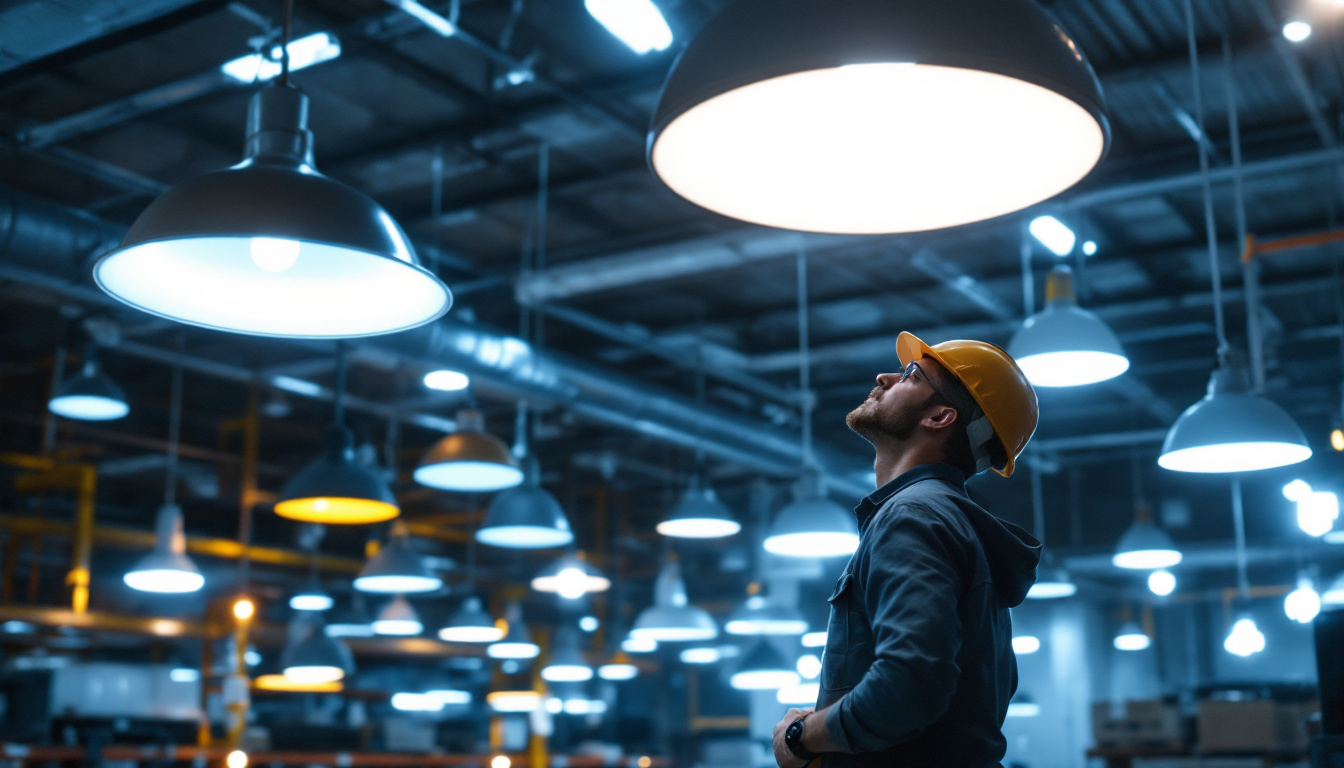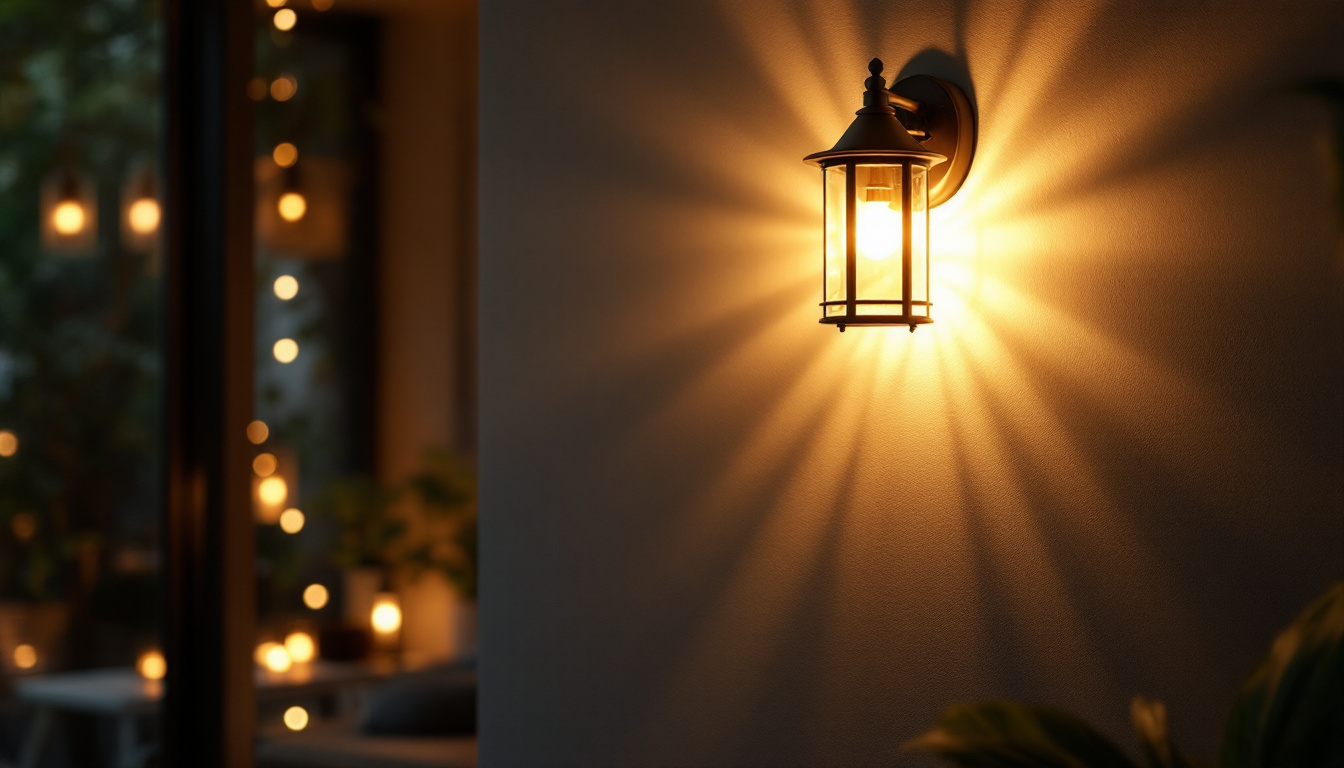
In the realm of industrial settings, lighting plays a pivotal role in ensuring safety, productivity, and efficiency. For lighting contractors, understanding the nuances of industrial lighting fixtures is essential not only for project success but also for client satisfaction. This article delves into the significance of industrial lighting fixtures and why they are crucial for lighting contractors.
Industrial lighting fixtures are designed to meet the specific needs of various industrial environments. From warehouses to manufacturing plants, these fixtures must provide adequate illumination while also being durable and energy-efficient. The right lighting can enhance visibility, reduce accidents, and improve overall operational efficiency.
One of the primary reasons industrial lighting fixtures are vital is their role in safety. Poor lighting can lead to accidents, injuries, and even fatalities in industrial settings. Properly designed fixtures ensure that all areas are well-lit, reducing the risk of slips, trips, and falls.
Moreover, many industries are subject to strict regulations regarding workplace safety. Lighting contractors must be familiar with these regulations to ensure compliance. This knowledge not only protects workers but also shields the company from potential legal issues. For instance, OSHA (Occupational Safety and Health Administration) has specific guidelines that dictate the minimum illumination levels required in various workspaces, which can vary significantly depending on the tasks being performed. Adhering to these standards is crucial for maintaining a safe work environment and can also enhance a company’s reputation as a responsible employer.
Effective lighting directly impacts productivity. In environments where employees are required to perform intricate tasks, adequate lighting is essential. Industrial lighting fixtures that provide uniform illumination help reduce eye strain and fatigue, allowing workers to maintain focus and efficiency throughout their shifts.
Furthermore, well-lit spaces can improve morale. Employees are more likely to feel motivated and engaged when they work in a well-illuminated environment. Lighting contractors should consider this aspect when selecting fixtures for their clients. In addition to the psychological benefits, modern industrial lighting solutions often incorporate advanced technologies such as LED systems that can be dimmed or adjusted based on the time of day or specific tasks. This adaptability not only conserves energy but also allows for a more tailored lighting experience, enhancing both comfort and productivity. Moreover, as industries increasingly embrace sustainability, energy-efficient lighting options contribute to lower operational costs and a reduced carbon footprint, aligning with corporate social responsibility goals.
Understanding the various types of industrial lighting fixtures is critical for lighting contractors. Each type serves a unique purpose and is suited for specific applications. Familiarity with these fixtures allows contractors to make informed decisions that best meet their clients’ needs.
LED lighting has gained immense popularity in industrial applications due to its energy efficiency and longevity. Unlike traditional lighting options, LEDs consume less power and have a longer lifespan, resulting in lower maintenance costs and energy bills.
Moreover, LED fixtures are available in various designs, including high-bay, low-bay, and floodlights, making them versatile for different industrial environments. Lighting contractors should advocate for LED solutions to their clients, highlighting the long-term benefits. The ability to dim LED lights and control them via smart systems also adds to their appeal, allowing for tailored lighting solutions that can adapt to changing work conditions or occupancy levels. This flexibility not only enhances productivity but also contributes to a more sustainable approach to energy consumption in industrial settings.
Fluorescent lighting is another common choice in industrial settings. These fixtures provide bright, even illumination and are often used in warehouses and assembly lines. While they are not as energy-efficient as LEDs, they still offer a good balance of performance and cost.
Lighting contractors should be aware of the limitations of fluorescent fixtures, such as their sensitivity to temperature and the need for regular maintenance. Understanding these factors can help contractors recommend the best lighting solutions for specific environments. Additionally, fluorescent lights can sometimes flicker or take time to warm up, which can be disruptive in fast-paced industrial operations. However, they do have the advantage of being available in a wide range of color temperatures, allowing for customization based on the specific tasks being performed. This adaptability can enhance worker comfort and efficiency, making it a viable option in certain applications.
In today’s world, energy efficiency and sustainability have become paramount considerations for many businesses. Lighting contractors play a crucial role in guiding clients toward energy-efficient solutions that not only reduce costs but also minimize environmental impact. As awareness of climate change and resource depletion grows, the demand for sustainable practices in all sectors, including lighting, is more pressing than ever. This shift not only reflects a commitment to environmental stewardship but also aligns with the evolving preferences of consumers who increasingly favor brands that prioritize sustainability.
Energy-efficient industrial lighting fixtures, such as LEDs, can significantly reduce energy consumption. This reduction translates into lower utility bills, which can be a substantial cost saving for businesses operating in energy-intensive industries. Moreover, energy-efficient lighting often boasts a longer lifespan compared to traditional options, which means fewer replacements and lower maintenance costs over time. This longevity not only enhances operational efficiency but also reduces waste, contributing to a circular economy where resources are utilized more effectively.
Additionally, many governments and organizations offer incentives for businesses that adopt energy-efficient technologies. Lighting contractors can assist clients in navigating these opportunities, further enhancing their value proposition. These incentives can come in the form of tax rebates, grants, or even financing options that make the transition to energy-efficient lighting more accessible. By leveraging these financial benefits, businesses can accelerate their return on investment, making the case for energy-efficient upgrades even more compelling.
Beyond energy efficiency, sustainability is a growing concern for many companies. Lighting contractors should consider recommending fixtures made from recyclable materials or those that have a lower environmental impact during their lifecycle. For instance, choosing products that are manufactured using sustainable practices or that comply with environmental standards can significantly enhance a company’s sustainability profile. Furthermore, the use of smart lighting systems, which adjust based on occupancy and natural light levels, can further optimize energy use and reduce waste.
By promoting sustainable lighting solutions, contractors not only help their clients meet corporate social responsibility goals but also position themselves as forward-thinking professionals in the industry. This proactive approach can lead to increased client loyalty and referrals, as businesses are more likely to partner with contractors who understand and prioritize their sustainability objectives. Additionally, as regulations around energy use and environmental impact become stricter, contractors who are well-versed in sustainable practices will be better equipped to navigate these changes and offer compliant solutions to their clients.
Different industrial applications require different lighting solutions. Lighting contractors must assess the specific needs of each environment to recommend the most suitable fixtures. This tailored approach ensures optimal performance and satisfaction for clients.
In warehouses, the primary goal is to ensure safety and efficiency. High-bay LED fixtures are often the best choice for these spaces, providing bright, uniform illumination that reaches high ceilings. Proper lighting helps workers navigate the space safely and efficiently, reducing the risk of accidents.
Moreover, contractors should consider the layout of the warehouse and the types of activities taking place when recommending fixtures. For instance, areas with heavy machinery may require additional lighting to enhance visibility and safety.
Manufacturing facilities often have unique lighting needs based on the specific processes involved. For example, assembly lines may require task lighting to illuminate workstations, while general areas benefit from ambient lighting.
Lighting contractors should conduct a thorough assessment of the facility to determine the best combination of fixtures. This may involve using a mix of LED, fluorescent, and task lighting to create a well-lit environment that supports productivity and safety.
Once the appropriate fixtures have been selected, the installation and maintenance process becomes crucial. Lighting contractors must ensure that fixtures are installed correctly to maximize their effectiveness and longevity.
Proper installation of industrial lighting fixtures involves not only placing them in the right locations but also ensuring that they are securely mounted and wired according to safety standards. Contractors should be familiar with local codes and regulations to guarantee compliance during installation.
Additionally, considering the future maintenance of fixtures is essential. Easy access for bulb replacement and fixture cleaning can save time and reduce costs in the long run. Contractors should communicate these considerations to their clients during the planning phase.
Routine maintenance is critical to the longevity and performance of industrial lighting fixtures. Contractors should recommend a maintenance schedule that includes regular inspections, cleaning, and timely bulb replacements.
By promoting proactive maintenance, contractors can help clients avoid unexpected downtime and costly repairs. This approach not only enhances the lifespan of the fixtures but also ensures that the lighting remains effective throughout its operational life.
The industrial lighting landscape is continually evolving, with advancements in technology and design. Lighting contractors must stay informed about emerging trends and innovations to provide the best solutions for their clients.
Smart lighting technology is gaining traction in industrial settings. These systems allow for remote control and monitoring of lighting, enabling businesses to optimize energy use and enhance operational efficiency. Lighting contractors should explore smart lighting options and educate clients about their benefits.
Integration with building management systems can also provide valuable data insights, allowing companies to make informed decisions regarding their lighting needs. This trend is likely to shape the future of industrial lighting, and contractors should be prepared to adapt.
As LED technology continues to advance, new options are becoming available that offer even greater efficiency and performance. Contractors should stay updated on the latest developments, such as tunable white LEDs and fixtures with improved color rendering capabilities.
By embracing these innovations, lighting contractors can provide clients with cutting-edge solutions that enhance the quality of their industrial lighting while also promoting energy efficiency.
Industrial lighting fixtures are a critical component of any industrial setting, influencing safety, productivity, and energy efficiency. For lighting contractors, understanding the importance of these fixtures and the various options available is essential for delivering effective solutions to clients.
By staying informed about industry trends, installation best practices, and maintenance considerations, contractors can position themselves as trusted partners in the industrial lighting landscape. As technology continues to evolve, embracing innovation will be key to meeting the ever-changing needs of clients and ensuring successful project outcomes.
Ready to elevate your industrial lighting projects with fixtures that promise safety, productivity, and energy efficiency? Look no further than LumenWholesale. We provide lighting contractors with an unparalleled selection of top-quality, spec-grade lighting products at wholesale prices that defy the market. Our commitment to cutting out the middleman means you enjoy superior products without the inflated markups, backed by the highest industry standards. Plus, with free shipping on bulk orders, you can stock up on premium lighting solutions at the best value — all without hidden fees or compromises. Don’t miss out on the perfect blend of quality, affordability, and convenience. Visit LumenWholesale today and discover the best in wholesale lighting for your next project.

Discover expert insights on overcoming common challenges faced by lighting contractors when installing indoor wall lanterns.

Discover the pitfalls of purchasing electric vehicle chargers in bulk from local distributors.

Illuminate your projects with confidence! Discover essential insights into super bright shop lights, tailored specifically for lighting contractors.

Discover the essential facts about automatic outdoor light timers in this comprehensive guide tailored for lighting contractors.